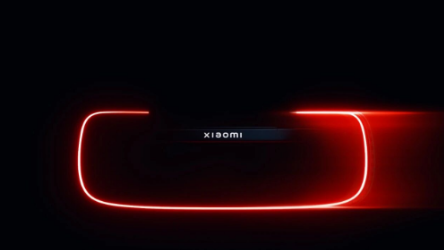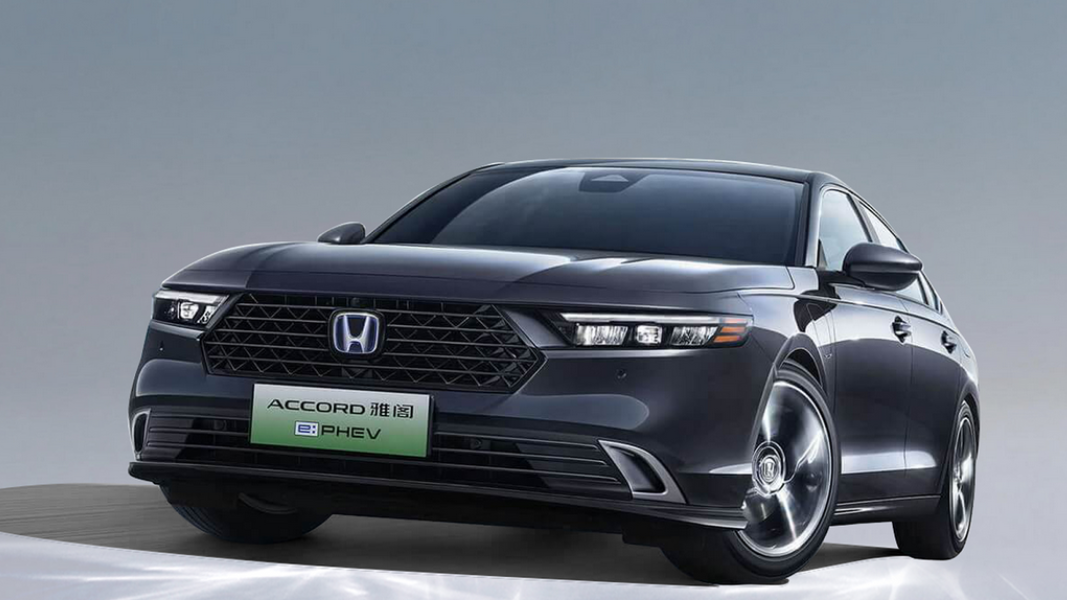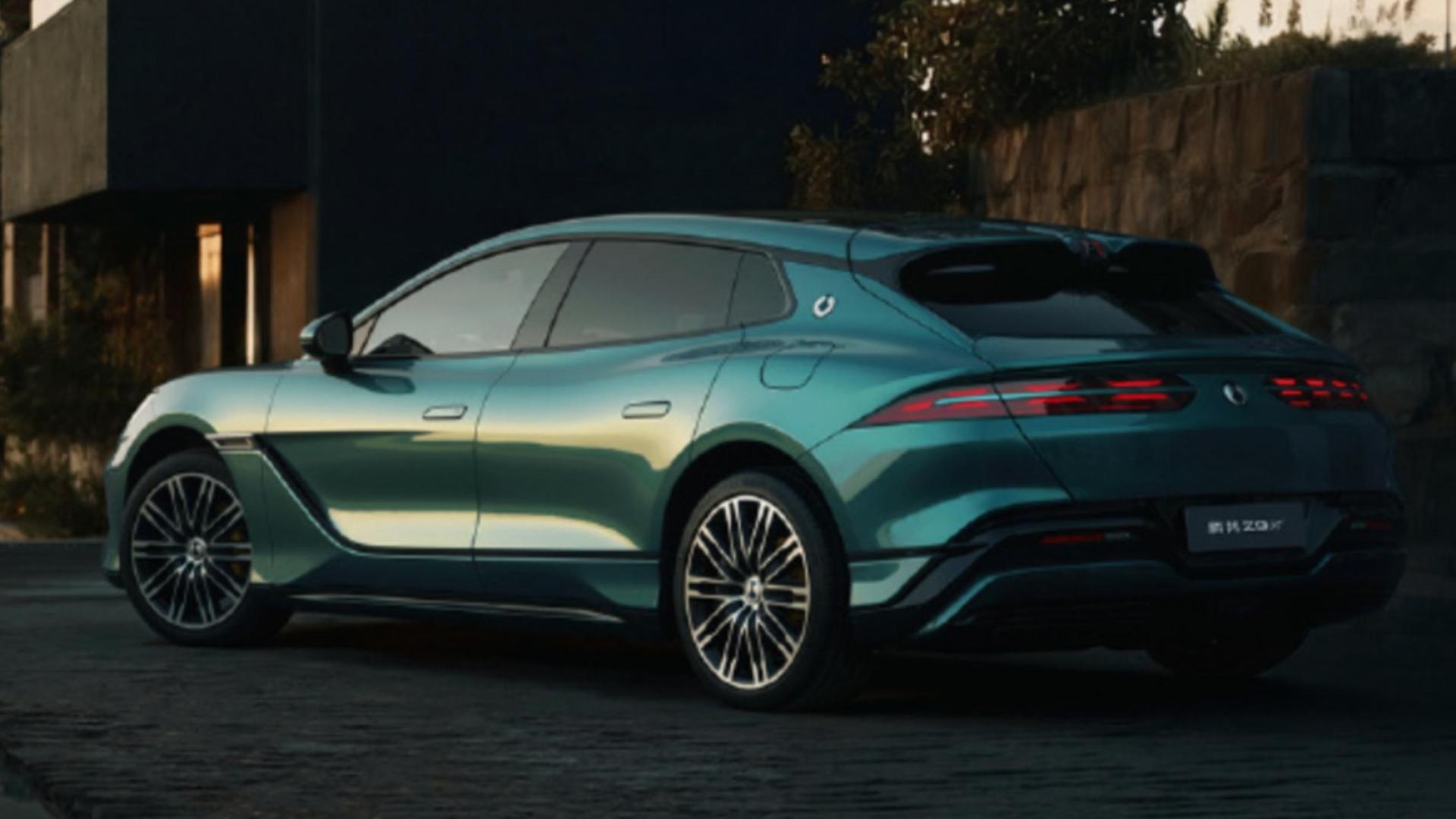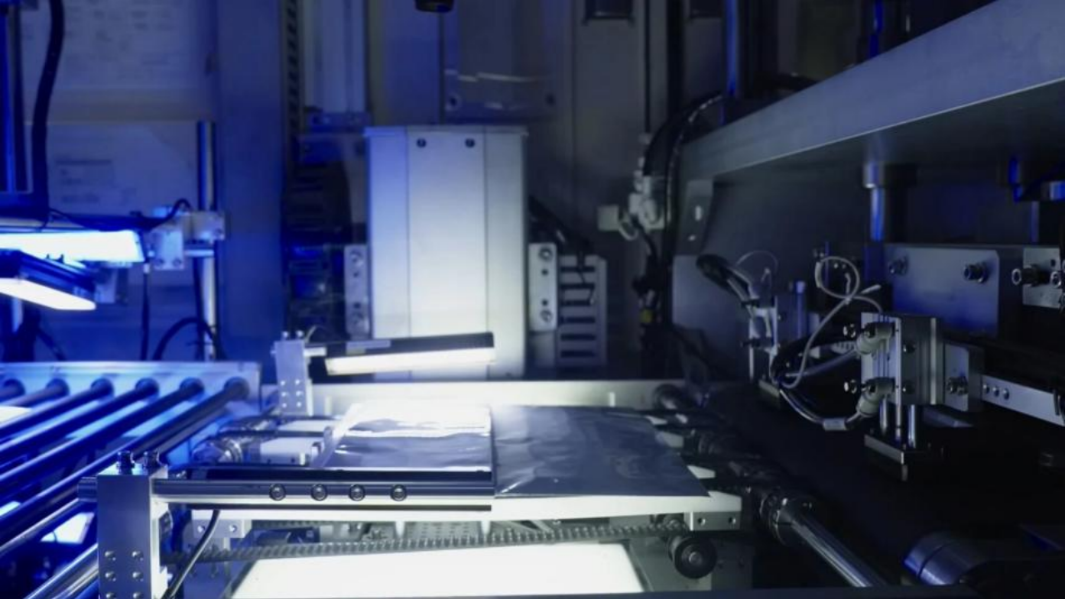Hi, this is Gasgoo. In this episode of "Wheels of Change: Stories of Chinese Auto Giants", let's continue our talk about BAIC Group, which has been quite low-profile in recent years.
Multi-approach to seize the leadership in electric and intelligent vehicles
Electrification and intelligentization has fundamentally transformed the automotive industry, prompting all car manufacturers to reposition themselves and continuously enhance their capabilities. BAIC Group is also seeking breakthroughs. In 2024, BAIC Group announced plans to invest at least 50 billion RMB in R&D over the next five years, with a focus on new energy and intelligence.
In the process of building its ecosystem, BAIC Group has heavily relied on BAIC Industrial Investment Co., Ltd. (BAIC Capital), established in 2012.
As a crucial player in BAIC Group's strategy to strengthen and supplement its industrial chain, BAIC Capital has proactively invested in forward-looking technologies to integrate upstream and downstream resources. It has invested in over 160 quality enterprises, covering cutting-edge technologies such as lithium batteries, next-generation battery technology, intelligent driving and chips.
In the NEV sector, BAIC Group has invested in projects like CATL, Farasis Energy, QingTao, and Amprius, spanning cell manufacturing to primary and auxiliary materials. Additionally, the Group has invested in fuel cell projects, including SinoHytec, Guofu Hydrogen Energy Equipment Co., Ltd. (GUOFUHEE), and TanFeng Energy.
In the ICV (Intelligent Connected Vehicle) sector, BAIC Capital has funded autonomous driving company IDRIVERPLUS, advancing intelligent driving technology, and invested in RoboSense, which focuses on lidar development, providing critical sensing capabilities for autonomous driving. Moreover, BAIC Capital has invested in Trinova, a supplier of automotive chassis control and active safety products, enhancing vehicle safety and intelligence.
Investments in the NEV and ICV sector have not only yielded substantial returns for BAIC Capital but also promoted business synergy with BAIC Group, boosting the group's overall competitiveness. Through these strategic investments, BAIC Capital is actively building an industry ecosystem centered on new energy and intelligence to support BAIC Group’s long-term development and drive innovation and progress in the automotive industry.
Furthermore, BAIC Group is continuously improving its external cooperation in NEV and ICV, expanding its network of autonomous R&D partners across various business areas to co-create a large ecosystem.
Up to now, BAIC Group has signed strategic cooperation agreements with companies such as Huawei, Bosch, Bethel, Horizon Robotics, and CATL. These partnerships aim to enhance collaboration in NEV and ICV sector, jointly improving R&D and application capabilities for key components in related fields.
Additionally, BAIC Capital has strategically partnered with Yihang Intellitech to further deepen business synergy in intelligent driving software and hardware architecture, algorithms, and local chip development.
Through collaborations with companies like CATL, Jingneng Technology, and Xiaomi Auto, BAIC Capital is also investing in the construction of smart manufacturing plants for battery cells, promoting the collaborative development of the NEV industry chain.
In terms of in-house R&D, BAIC Group has established a research team of over 10,000 people, prioritizing the development of intelligent technologies. The focus includes smart cockpits and intelligent driving, constructing an independent intelligent R&D system, advancing core technology self-reliance, and participating in the L3 intelligent connectivity pilot program of China’s Ministry of Industry and Information Technology (MIIT).
In the R&D of NEV, BAIC Group is accelerating platform-based development, independently developing universal modules for battery cells, motors, and high-voltage charging. Over three years, all models of BAIC’s self-owned brands will undergo upgrades, achieving full coverage of pure electric, hybrid, and hydrogen fuel technologies for commercial vehicles.
With the dual support of capital operations and in-house R&D, BAIC Group has made significant achievements in NEV and ICV sector. For example, It has created the only full-process electronic control testing automation tool chain in China and has overcome key technologies in high-power graphite plate fuel cell engine design. Moreover, Its self-developed E/E architecture has been licensed to American companies, pioneering the export of core automotive technologies from China to foreign markets.
With Huawei in one hand and Xiaomi in the other, BAIC Group seeks a new way out
After the sales slump in 2021 and 2022, BAIC BJEV has seen a recovery in revenue and sales. In particular, the ARCFOX brand has made evident improvements. On the one hand, the operation of ARCFOX has moved from chaos to the norm; on the other hand, the iteration of ARCFOX αS has achieved a good performance, and the new model Kaola has met market expectations.
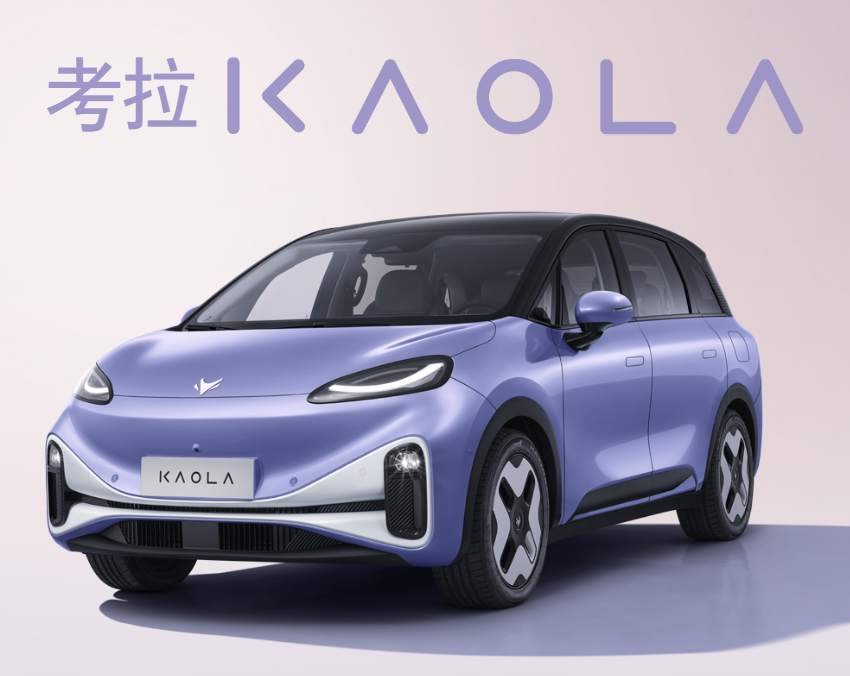
Kaola; Photo credit: BAIC Group
Furthermore, the overall development of BAIC Group has shown signs of improvement. In 2023, the Group's revenue and sales data stabilized, preventing further decline. The noticeable recovery of BAIC BJEV has offered hope for a positive transformation.
Jiang Deyi, the former chairman of BAIC Group, has set three targets: Beijing Hyundai aims to achieve sales scale, Beijing Benz should serve for revenue and profit, and BAIC BluePark should lead the electrification transformation. BAIC BJEV will play a crucial role in group’s upward transformation.
In addition to increasing investments in NEV and ICV sector, BAIC Group is also actively seeking external collaborations.
In mid-February, BAIC BluePark announced the upcoming launch of STELATO, developed in collaboration with Huawei under the Smart Selection model, the first product of which is a smart sedan aimed at the high-end market. BAIC BluePark stated that the STELATO project is progressing rapidly, with plans to establish distribution and service networks in Asia and Europe by 2024 to bring the high-end sedan to overseas markets.
Industry analysts believe that through projects like the smart selection car, BAIC Group can fully leverage Huawei's technological advantages in intelligent driving and smart connectivity to jointly create high-quality smart cars and enhance market competitiveness.
On November 15th of 2023, Xiaomi Auto appeared in the latest batch of new vehicle announcements by MIIT. The application information indicates that the product trademark is Xiaomi, but the applicant company is BAIC Group Off-road Vehicle Co., Ltd. (BAIC ORV). Previously, one of the biggest issues for Xiaomi in car manufacturing was the production qualification. The MIIT's public information suggests that Xiaomi Auto has ultimately utilized the production qualification of BAIC.
Industry analysts also speculate that BAIC may manufacture vehicles for Xiaomi Auto. While Xiaomi's own factory has already started production, if BAIC indeed manufactures vehicles for Xiaomi Auto, it would provide another opportunity for BAIC Group.
Currently, BAIC BJEV has three major factories, in Qingdao, Changzhou and Zhenjiang respectively, with design capacities of 320,000, 50,000, and 150,000 units, totaling 520,000 units.
Overall, BAIC Group possesses high-end manufacturing experience in NEVs with significant excess capacity, and is capable to manufacture cars for Xiaomi Auto if both sides agree.
Actively going abroad, BAIC Group aims to stay and integrate into the local market
BAIC Group has a long history of international expansion. In 2004, BAIC Foton has led the internationalization process for the BAIC Group. As a firm long-termist, BAIC Group has walked out a unique road for its overseas expansion.
As early as 2012, BAIC passenger cars also began to look at overseas markets. BAIC aims to penetrate into nine regional markets categorized into "three big", "three small" and "three adjacent" markets, with the goal of achieving 30% of its passenger vehicle sales from overseas markets.
The "three big" markets refer to the strategic overseas markets: Brazil, Iran, and Russia. The "three small" markets are smaller, more accessible regions, while the "three adjacent" markets are those surrounding China, such as East Asia.
In 2013, BAIC established BAIC International Development Co., Ltd. (BAIC International) as a unified platform for its overseas passenger vehicle business. BAIC International classifies its target markets into strategic markets, such as Brazil, Mexico and Russia, and profit markets, such as North Africa and Central and South America.
BAIC's initial step into underdeveloped automotive markets in Asia, Africa, and Latin America was just the beginning, and mature markets in Europe and North America remain its key strategic focus.
In 2017, BAIC Group entered the North American market, targeting key segments like sedans, SUVs, and pickups. Models such as the BAIC Senova D20 hatchback, D50 and D60 sedan, X25 and X35 SUV, and the BAIC Huansu S6 have been well received in North America. In Europe, BAIC has also successfully penetrated into the market with models like the X35, X7, Rubik's Cube (overseas version named BEIJING X55), and the off-road vehicles.
For overseas market, BAIC Group knows the importance of localization strategy. In 2012, BAIC Foton has already started to build a factory in India and invested $500 million in constructing a new plant in Cameroon. BAIC Group has also established overseas R&D centers in Turin of Italy and Stuttgart in Germany, as well as research institutions in the United States and Japan, achieving an international layout of its R&D system.
So far, BAIC Group has made significant progress in its export business. In 2023, BAIC International's exports exceeded 40,000 units, a year-on-year increase of over 140%, and BAIC Foton's exports surpassed 130,000 units, growing by 49.1% year-on-year, maintaining its leading position in the industry.
The overseas business of BAIC Group should be viewed separately for commercial and passenger vehicles.
In terms of passenger vehicles, BAIC Group has made further breakthroughs in markets such as the Middle East, Africa, and South America. In countries like the UAE, Mexico, Argentina, Chile, Poland, and South Africa, new products such as the BEIJING X55, the new X7, and the BJ60 have entered the market, providing BAIC International with effective tools for global expansion. Currently, BAIC Group operates in 49 countries and regions worldwide.
In commercial vehicle exports, BAIC Foton has maintained its position as China’s top commercial vehicle exporter for 12 consecutive years. By leveraging its competitive products, BAIC Foton has achieved comprehensive leadership in core markets like Southeast Asia and Latin America. With over 20 years of experience in R&D and marketing, BAIC Foton has achieved product synchronization in domestic and international markets.
In Chile, BAIC Foton holds the top market share in micro truck; in Colombia, BAIC Foton has been the second-best-selling truck brand for three consecutive years; in the Philippines, BAIC Foton has led sales in the 7.5-ton light truck segment for three consecutive years. Additionally, the new energy products of BAIC Foton, such as pure electric light trucks, vans, and buses, have passed the WVTA, accelerating its business in Europe.
Going abroad is only the first step for automakers; staying and even integrating into the local market is the long-term goal. Thus, BAIC Group is enhancing its product and brand strength while gradually integrating into local markets through overseas factory construction, establishing subsidiaries, and localizing operations and management.
In 2023, the first overseas passenger vehicle production base of BAIC Group: the South Africa factory, was fully completed and commenced production. This facility serves as a global production and export base, covering Africa, the Middle East, and Latin America, also driving the upstream and downstream industrial chains. The first Beijing X55 made in South Africa has successfully rolled off the production line.
BAIC Foton also adopts a localization production strategy to gradually replace complete vehicle imports. Currently, the second assembly plant in Argentina of BAIC Foton is under construction, with a capacity of 5,000 units per year, adding more value to the local market.
In summary, BAIC Group is both a witness and participant in the development of China’s automotive industry, forging ahead through exploration and trial and error. In the NEV sector, BAIC Group has gained a first-mover advantage by pioneering and experimenting, becoming a test case in the NEV race.
In times of industry upheaval, maintaining strategic determination is crucial. Currently, competition in the automotive market is intensifying. Zhang Xiyong predicts that by 2030, China’s automotive industry will form a "6+N" pattern, with six enterprises possessing production and operational autonomy surviving the intense competition. BAIC Group clearly aims to be one of these six companies. To this end, Zhang Xiyong has set operational targets for 2025, aiming for sales of 2.43 million units and revenue of 560 billion RMB.






